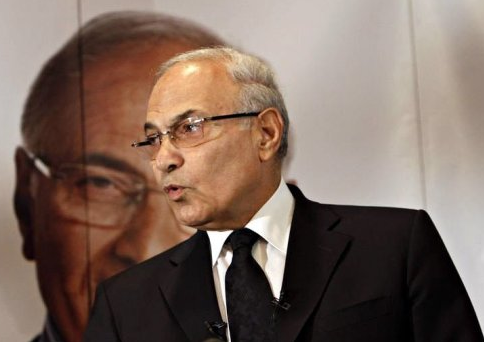TRIPOLI: Moamer Qaddafi’s government was mulling extending Wednesday a deadline for rebels in Libya’s third city Misrata to lay down their arms after the deputy foreign minister said scores had surrendered.
As military chiefs of NATO’s 28 member-states gathered for a two-day meeting in Brussels, French Foreign Minister Alain Juppe said the aim of the air campaign being led by the Western alliance was to weaken but not to kill the Libyan strongman by bombarding his strategic sites.
Deputy foreign minister Khaled Kaim told reporters in Tripoli that around 400 fighters had turned in their arms in Misrata, the rebel’s last major bastion in western Libya, which has been under loyalist siege for almost two months.
His comments could not be verified.
"I hope that the minister of justice will listen to our call to extend it at least for another day or two, because there are good signs among people there in Misrata," Kaim said.
He said the deadline to surrender in exchange for an amnesty expired at midnight (2200 GMT) Tuesday, but it had already been rejected by the rebels fighting to oust Qaddafi after more than 40 years in power in the oil-rich North African nation.
AFP correspondents heard no fighting during the night but medics said that at least one person was killed and some 30 wounded in clashes around Misrata on Tuesday.
The death toll was sharply down on Monday when 14 people died.
The fighting centered on the city’s western and southwestern suburbs, close to the loyalist forces’ base at the airport.
Rebel commanders said that there had been several NATO air strikes on Qaddafi’s armor on Tuesday but there was no immediate confirmation from the Western alliance.
With the airport in government hands, the rebels are entirely dependent on supply by sea. The port has been repeatedly shelled by Qaddafi’s forces and few vessels are docking, resulting in a worsening food shortage.
The expiry of the deadline came after a car bomb near the rebel headquarters in their eastern stronghold of Benghazi wounded two people Tuesday and frayed nerves.
The explosion happened about 200 meters (yards) from the insurgents’ seafront headquarters.
"It was a car bomb," rebel military spokesman Omar Ahmed Bani told AFP, while Libyan journalist Nasser Warfuli said at the scene that the vehicle was a white Chevrolet that blew up just before evening prayers.
"I was walking and everything exploded around me," Mohamed Tosi, one of the two men injured, said from his sick bed at Al-Jalaa hospital, where the second injured man, also suffering from shrapnel wounds, was treated and discharged.
The blast sparked scenes of chaos as hundreds of men, many toting pistols or Kalashnikovs, milled around and climbed on top of the twisted metal of the car wreck to chant slogans against Qaddafi.
Several said they believed the blast, the first car bomb in Benghazi since the Libyan uprising started in mid-February, was the work of "Qaddafi cells."
Benghazi was on the verge of being overrun by Qaddafi forces when Western warplanes began a bombing campaign on March 19 to enforce a UN-mandated no-fly zone to protect civilians.
But since then it has seen no fighting and the frontline between Qaddafi’s forces and the rebels now lies 160 kilometers (100 miles) to the southwest.
In the capital Tripoli three loud explosions were heard early on Wednesday as jets flew overhead, days after Qaddafi narrowly escaped a NATO air strike that killed one of his sons.
Qaddafi however was in good health, deputy foreign minister Kaim said.
"He is very well," Kaim said, adding he met on Tuesday with "a number of tribal leaders" ahead of a tribal meeting on Thursday and Friday.
The French foreign minister denied that NATO was seeking to take out the Libyan strongman.
"Our aim is not to kill Qaddafi," Juppe said on news channel France 24, describing as "collateral damage" the death of the Libyan leader’s son Saif Al-Arab in a NATO-led air strike.
Juppe acknowledged that the air campaign, now in its seventh week, was taking time, but denied that it would drag on into a protracted conflict.
"There is no question of getting bogged down in Libya," he said. "I hope that will last no longer than a few weeks, a few months at the most. But it is premature to talk of getting bogged down.
As the International Contact Group on Libya prepares to meet in Rome on Thursday, the rebels’ provisional government in Benghazi stepped up its lobbying for an emergency credit lifeline from Western governments to stop it running out of funds amid a virtual halt to oil exports.
On Tuesday the rebels appealed for loans of up to $3 billion from the United States and the two European countries which have recognized them — France and Italy — to be secured on assets of the Qaddafi regime frozen abroad.
"The liquidity that we have domestically most likely will carry us through three weeks, at the most four weeks," said Ali Tarhoni, who holds the economy and oil portfolio in the rebel administration.
He said the three billion would enable the administration to keep afloat for three to four months.


